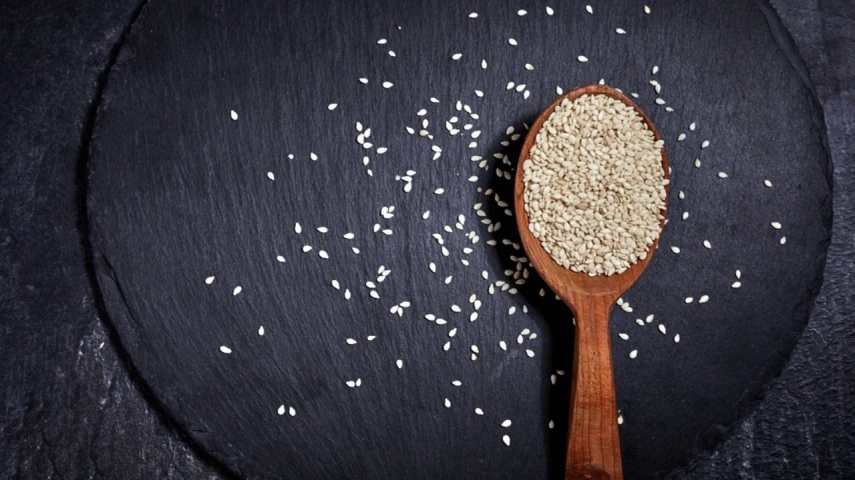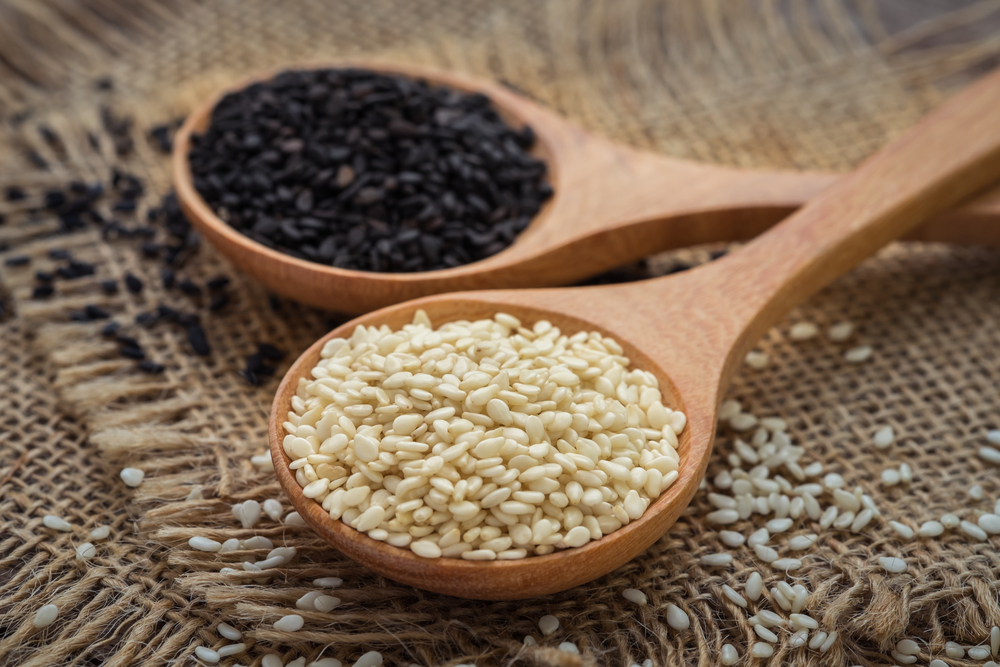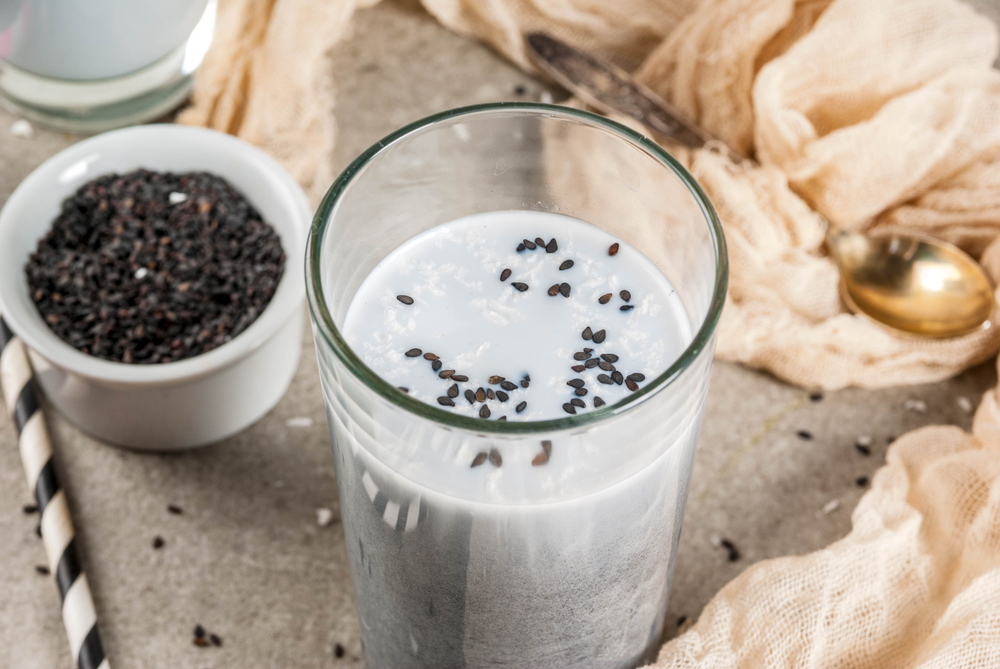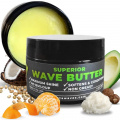Top 8 Wonderful Health Benefits of Sesame Seeds
Unlock the remarkable health benefits of sesame seeds. Packed with nutrients, these tiny powerhouses support heart health, boost bone strength, and more.

From ancient times to the modern era, these nutrient-packed seeds have garnered attention for their potential to promote overall well-being and combat various health issues. These tiny seeds, derived from the Sesamum indicum plant, have played a significant role in various cuisines. Not only are sesame seeds deliciously versatile but they are also packed with essential nutrients that contribute to overall well-being. Read on to know about the various health benefits of sesame seeds.
Packed with essential nutrients, including calcium, iron, magnesium, zinc, and fiber, sesame seeds offer a concentrated dose of goodness. These lignans have been associated with improved heart health and a reduced risk of cardiovascular diseases (1). Sesame contains a unique compound called sesamin, which has shown promising results in animal studies for its ability to improve insulin sensitivity and regulate blood sugar levels (2). Notably, sesame seeds are a rich source of plant-based protein, making them a valuable addition to vegetarian and vegan diets.
These versatile seeds can be incorporated into your diet in various forms, such as oil, paste, powder, or even as a roasted snack. Additionally, they can be used to create delectable desserts or ground and blended into gravies for added flavor and nutritional benefits. Keep reading to discover more about these small but mighty seeds and how they can enhance your culinary adventures and overall well-being.
What Are Sesame Seeds?
Sesame seeds are probably one of the most common seeds consumed by humans all over the world. Primarily grown in tropical regions, these are found in the pods of the sesame plant. From the family of Pedaliaceae, they come in a variety of colors — white, yellow, and black. Packed with nutty flavors and all the medicinal goodness, white sesame seeds are used in cooking and baking, while black are used for Asian cuisines.
All types of sesame seeds are loaded with healthy fats, including monounsaturated and polyunsaturated fats, which contribute to heart health and overall well-being. However, white sesame seeds are high in iron content, while black ones are mostly used as edible oil, are more flavorful with a stronger aroma, and are mainly used for medicinal purposes. (3).
Nutrition Value of Sesame Seeds

Sesame seeds are rich in plant-based protein, dietary fiber, and an array of vitamins and minerals. They contain notable amounts of calcium, magnesium, iron, zinc, and vitamin E, among others.
Below is the nutritional value of sesame seeds per 100g:
- Energy – 563 kcal
- Carbohydrates – 9.85 g
- Dietary Fiber – 14.9 g
- Fats – 49.7 g
- Protein – 18 g
- Calcium – 962 mg
- Iron – 14.6 mg
- Phosphorous – 605 mg
- Copper – 1.58 mg
- Zinc – 5.74 mg
- Vitamin B1- 79 mg
- Vitamin B2- 25 mg
- Vitamin B5- 5 mg
- Vitamin B9- 97 mg
- Vitamin B6- 79 mg
According to Dt. Deepti Lokeshappa Senior Consultant, Nutritionist, and Dietitian, Motherhood Hospital, Bangalore, “Protein, vitamins, minerals, and antioxidants are found abundant in sesame seeds. It also adds a nutty flavor and crunchy texture to the food. Three tablespoons of sesame seeds provide 5 grams of protein. It is advisable to consume these seeds as hulled and roasted to maximize the availability of protein. Oxalates and phytates, which impair protein digestion and absorption, are reduced by the hulling and roasting processes. Since it aids in the synthesis of hormones and muscles, protein is crucial for maintaining good health. Notably, lysine, an important amino acid that is more prevalent in animal products, is low in sesame seeds. Vegans and vegetarians can make up for this by ingesting plant proteins high in lysine, particularly legumes like kidney beans and chickpeas. Conversely, sesame seeds are rich in cysteine and methionine, two amino acids that legumes don’t provide in large amounts.”
You will want to consume a handful of sesame seeds per day after learning more about the health benefits of sesame seeds.
Amazing Health Benefits of Sesame Seeds
1. May Help Keep your Heart Healthy

Sesame seeds are loaded with healthy fats, including 39% monounsaturated and 14% polyunsaturated fats per 100 g (3). Omega-3 and Omega-6 fatty acids have been linked with reducing cardiovascular diseases as they decrease bad cholesterol and triglycerides and increase good cholesterol, keeping your heart active and healthy. According to the research, eating healthy fats such as monounsaturated and polyunsaturated fats lowers overall cholesterol levels and the risk of developing heart disease (1). There is more to it — the lignans and phytosterols present in sesame seeds may also help lower cholesterol levels in the blood.
2. May Help Improve Digestive Health
Sesame seeds are rich in dietary fiber, which adds bulk to the stool and helps prevent constipation (3). Fiber absorbs water as it passes through the digestive system, resulting in softer and bulkier stools that are easier to pass. This promotes regular bowel movements and prevents the discomfort and potential complications associated with constipation.
Insoluble fiber, found in sesame seeds, acts as a natural laxative, promoting regularity and preventing the development of conditions like hemorrhoids and diverticulitis. By providing gentle and consistent stimulation to the digestive system, fiber helps maintain optimal gut health and ensures that nutrients are efficiently absorbed and utilized by the body. This is important for overall health and can contribute to improved energy levels and nutrient status (4).
3. May Help Lower Blood Pressure
High blood pressure is an alarming condition that may give rise to heart diseases and strokes (5).
Sesame seeds are a good source of magnesium, a mineral that plays a role in regulating blood pressure. It helps relax and dilate blood vessels and reduce peripheral tension. Furthermore, the lignans, vitamin E, and other antioxidants in sesame seeds help prevent plaque buildup, which in turn helps maintain blood pressure (6).
As per Jesse Feder, a personal trainer & Registered Dietitian and contributor to My Crohn’s and Colitis Team, a hypertensive patient can consume sesame seeds. In fact, sesame seeds contain healthy fats, vitamins, minerals, and fiber. These things are actually beneficial for those with hypertension.
In a particular study, individuals diagnosed with high blood pressure were given a daily dosage of 2.5 grams of powdered black sesame seeds in the form of capsules. After a period of one month, these individuals displayed a notable decrease of 6% in their systolic blood pressure. This reduction in blood pressure was observed when compared to the group that received a placebo instead of the sesame seed capsules (7).
4. May Promote Bone Health
Sesame seeds, as a mineral powerhouse, help to maintain optimal bone health. Heavily rich in calcium, these seeds serve as a strong source for healthy bones, while magnesium from seeds supports bone density and maintains structure. On the other hand, zinc aids in collagen production, which is vital for bone health (8), (9).
However, sesame seeds also contain natural components like oxalates and phytates that reduce the absorption of these minerals; hence, to avoid this from happening, one may try soaking, roasting, or sprouting the seeds before consumption. (10).
5. May Help Rejuvenate Your Skin

Sesame seeds have long been recognized for their potential to promote skin health. These tiny seeds are packed with nutrients and compounds that contribute to maintaining healthy and radiant skin.
The reason it helps to have glowy skin is its high content of essential fatty acids, including omega-6 fatty acids, which help nourish and moisturize the skin.
Sesame seeds have antioxidant properties because of sesamol and sesamin, which protect the skin from oxidative stress caused by environmental factors like pollution, UV radiation, and free radicals (11). Inflammation is a common factor in skin issues like acne, eczema, and psoriasis (12).
Incorporating sesame seeds into the diet or using sesame seed oil in skincare routines may help alleviate inflammation-related skin concerns. Whether consumed as a snack, added to meals, or applied as an oil, sesame seeds provide nourishment and support for maintaining a healthy complexion.
6. May Control Blood Sugar Levels
The fiber content in sesame seeds plays a significant role in maintaining blood sugar levels. Fiber slows down carbohydrate absorption, preventing a rapid spike in sugar levels. It is also rich in healthy fats and proteins, as mentioned above, which also slow digestion and give the body time to release glucose into the bloodstream (2).
Sesame seeds contain pinoresinol, this compound is responsible for inhibiting the response of the digestive enzyme maltase. In return, this also contributes to regulating blood sugar levels (13).
7. May Help Relieve Knee Pain
Arthritis is a degenerative disorder leading to symptomatic joint pain, particularly in the knees and knuckles (14). The anti-inflammatory properties of sesame oil, because of the phytosterols in it, help alleviate knee pain and improve joint health too. (15). To get effective results, one should apply it regularly, twice a day, and massage it softly over the joints.
As per Jesse Feder, sesame oil is commonly used in certain holistic practices. It contains certain compounds known for their anti-inflammatory and antioxidative properties. It is often warmed up and massaged into the affected joint through the skin. This may help reduce inflammation, stiffness, and increase blood flow to the area.
During a study conducted over a period of two months, individuals suffering from knee arthritis were given a daily dose of 5 tablespoons (40 grams) of sesame seed powder in addition to their prescribed drug therapy. The results revealed a significant reduction in knee pain, with a 63% decrease reported in the sesame seed group compared to a 22% decrease in the group solely on drug therapy (16).
8. May Help with Hormonal Imbalances During Menopause
Phytoestrogens present in sesame seeds mimic the effects of estrogen in the body. Hence, during the time of menopause, estrogen levels steeply go down in a woman’s body, which may be compensated by consuming sesame seeds. The phytoestrogens combine with estrogen receptors in the body. This helps with mood swings, hot flashes, and night sweats, which are the common symptoms of menopause (17), (18).
How to Add Sesame Seeds to Your Diet – 6 Easy Recipes to Try

Now that you are well aware of the health benefits of sesame seeds, it is time to consume them to get the most of the nutrients.
Try these easy-to-make recipes to add extra oomph in a healthier way!
1. Sesame Seed Toppings
Add nuttiness to your salads and dishes by sprinkling a handful of sesame seeds on top. To get the most out of it, make sure to dry roast your sesame seeds or stir-fry them along with your veggies. You may also add it to your soup or noodle dishes for extra flavor.
2. Tahini Sauce
Make this super-delicious sauce in less than 15 minutes. Blend the dry-roasted sesame seeds along with some olive oil, lemon juice, garlic, and a pinch of salt. This goes perfectly well with your salads, hummus, and sandwiches.
3. Sesame Seed Bars
If you love sweets and yet want to get some good nutrition out of them, then this is the one for you. Roast your sesame seeds (white or black) with dried fruits, honey, and coconut oil. Mix everything together in a tray and let it come to room temperature before putting it in the refrigerator. These homemade sesame seed bars are a great on-the-go snack packed with energy and essential nutrients.
4. Sesame-crusted Chicken Or Fish
Coat chicken breasts or fish fillets with a mixture of ground sesame seeds, breadcrumbs, and your favorite herbs and spices. Pan-fry or bake until golden and cooked through. The sesame crust adds a flavorful and crunchy coating to the protein, making it a delicious and nutritious meal.
5. Sesame Seed Dressings
Whisk together sesame seeds, soy sauce, rice vinegar, honey, garlic, ginger, and sesame oil to create a flavorful dressing for salads or drizzle over steamed vegetables. Adjust the ingredients according to your taste preferences, and enjoy the nutty and savory flavors of the sesame seed dressing.
Remember to store sesame seeds in an airtight container in a cool and dry place to maintain their freshness and prevent them from going rancid. Whether you're sprinkling them on top of dishes or incorporating them into recipes, sesame seeds can add a delightful taste and a nutritional boost to your meals.
6. Crunchy Sesame Sticks
This may turn out to be your go-to evening snack if you are a person who loves to snack. All you need is some jaggery, sugar, ricotta cheese, and sesame seeds.
Dry roast your seeds until golden brown, and you'll get a nutty smell all over your house. Once it is roasted enough, let it dry in a separate dish. Now add the jaggery to a separate pot and let it melt completely on low heat. Add cardamom powder, ricotta cheese, and peanuts to the melted jaggery. Mix all of it nicely and turn off the heat. Add the mixture to the seeds and spread it on an oiled tray. Let it dry, and cut it into long sticks!
Side Effects of Sesame Seeds
With all the health benefits that sesame seeds come with, they may pose a serious threat to health, especially when consumed in large quantities. Hence, make sure to consume in moderate amounts and not ignore any side effects. Below are the most common side effects of sesame seeds.
1. Allergies

Sesame seeds rank 9th on the list of most common allergic foods in the world, making sesame seed allergies more prevalent than you might think (??19).
The symptoms may range from mild vomiting, nausea, or stomach pain to a severe anaphylactic reaction. Anaphylaxis is a life-threatening condition leading to breathing difficulties, swelling of the airway, and a sudden drop in blood pressure. The symptoms include excessive itching, rashes, and swelling of the eyes and joints. This will require immediate medical help and can be fatal (20).
2. Kidney Problems
Sesame seeds contain oxalates, which can contribute to the formation of kidney stones in susceptible individuals. If you have a history of kidney stones or are at risk, it is advisable to moderate your intake of foods high in oxalates, including sesame seeds. (21).
3. Medication Interactions

Sesame seeds may interact with certain medications, particularly blood-thinning, diabetic, and tamoxifen medications. If you are taking such medications, have a bleeding disorder, or are diabetic, consult with your healthcare provider before increasing your sesame seed consumption (22), (23 ), (24).
4. Caloric Density
Sesame seeds are high in fat and calories. While they offer health benefits, excessive consumption without considering portion sizes can contribute to weight gain. Moderation is key when incorporating sesame seeds into your diet (25).
Conclusion
The health benefits of sesame seeds are a treasure trove for a nutritional and well-balanced diet. These tiny yet powerful seeds have been celebrated for centuries and continue to be recognized for their nutritional value and potential to combat various health issues.
Rich in essential nutrients such as calcium, iron, magnesium, zinc, and fiber, sesame seeds provide a concentrated dose of goodness. They have been associated with improved heart health, reduced cholesterol levels, and lower blood pressure. Sesame seeds offer support for digestive health, promoting regular bowel movements and optimal gut function. Learning to incorporate it into the diet is the key to enjoying its nutrition and nuttiness.
However, as they have been under the allergic food radar, it is best to cross-check with a sample taste test before including them in your diet for good. If you have specific health concerns or conditions, it's recommended to seek advice from a healthcare professional or registered dietitian before making significant dietary changes involving sesame seeds.
With their nutritional profile and versatile usage, sesame seeds can truly make a positive impact on your health journey.
Contributor: Jesse Feder, Personal Trainer & Registered Dietitian for My Crohn's and Colitis Team
ALSO READ: 6 Health benefits of Collagen supplements that compel people to use them





 JOIN OUR WHATSAPP CHANNEL
JOIN OUR WHATSAPP CHANNEL
































































































